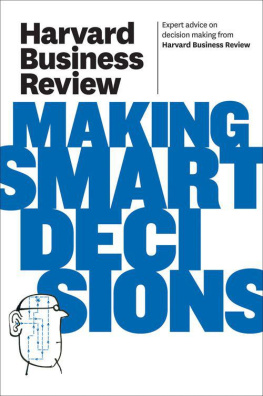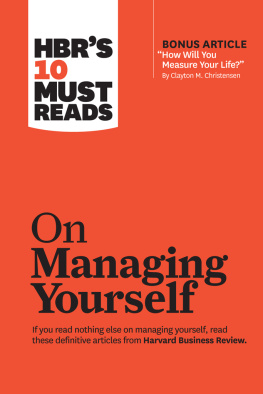Harvard Business Review - Monopolies and Tech Giants
Here you can read online Harvard Business Review - Monopolies and Tech Giants full text of the book (entire story) in english for free. Download pdf and epub, get meaning, cover and reviews about this ebook. year: 2020, publisher: Harvard Business Review Press, genre: Politics. Description of the work, (preface) as well as reviews are available. Best literature library LitArk.com created for fans of good reading and offers a wide selection of genres:
Romance novel
Science fiction
Adventure
Detective
Science
History
Home and family
Prose
Art
Politics
Computer
Non-fiction
Religion
Business
Children
Humor
Choose a favorite category and find really read worthwhile books. Enjoy immersion in the world of imagination, feel the emotions of the characters or learn something new for yourself, make an fascinating discovery.

- Book:Monopolies and Tech Giants
- Author:
- Publisher:Harvard Business Review Press
- Genre:
- Year:2020
- Rating:5 / 5
- Favourites:Add to favourites
- Your mark:
- 100
- 1
- 2
- 3
- 4
- 5
Monopolies and Tech Giants: summary, description and annotation
We offer to read an annotation, description, summary or preface (depends on what the author of the book "Monopolies and Tech Giants" wrote himself). If you haven't found the necessary information about the book — write in the comments, we will try to find it.
Harvard Business Review: author's other books
Who wrote Monopolies and Tech Giants? Find out the surname, the name of the author of the book and a list of all author's works by series.
Monopolies and Tech Giants — read online for free the complete book (whole text) full work
Below is the text of the book, divided by pages. System saving the place of the last page read, allows you to conveniently read the book "Monopolies and Tech Giants" online for free, without having to search again every time where you left off. Put a bookmark, and you can go to the page where you finished reading at any time.
Font size:
Interval:
Bookmark:

Insights You Need from Harvard Business Review
Business is changing. Will you adapt or be left behind?
Get up to speed and deepen your understanding of the topics that are shaping your companys future with the Insights You Need from Harvard Business Review series. Featuring HBRs smartest thinking on fast-moving issuesblockchain, cybersecurity, AI, and moreeach book provides the foundational introduction and practical case studies your organization needs to compete today and collects the best research, interviews, and analysis to get it ready for tomorrow.
You cant afford to ignore how these issues will transform the landscape of business and society. The Insights You Need series will help you grasp these critical ideasand prepare you and your company for the future.
Books in the series include:
Agile
Artificial Intelligence
Blockchain
Climate Change
Customer Data and Privacy
Cybersecurity
Monopolies and Tech Giants
Strategic Analytics
The Year in Tech, 2021

MONOPOLIES + TECH GIANTS
Harvard Business Review Press
Boston, Massachusetts
HBR Press Quantity Sales Discounts
Harvard Business Review Press titles are available at significant quantity discounts when purchased in bulk for client gifts, sales promotions, and premiums. Special editions, including books with corporate logos, customized covers, and letters from the company or CEO printed in the front matter, as well as excerpts of existing books, can also be created in large quantities for special needs.
For details and discount information for both print and ebook formats, contact .
Copyright 2020 Harvard Business School Publishing Corporation
All rights reserved
No part of this publication may be reproduced, stored in or introduced into a retrieval system, or transmitted, in any form, or by any means (electronic, mechanical, photocopying, recording, or otherwise), without the prior permission of the publisher. Requests for permission should be directed to , or mailed to Permissions, Harvard Business School Publishing, 60 Harvard Way, Boston, Massachusetts 02163.
The web addresses referenced in this book were live and correct at the time of the books publication but may be subject to change.
Library of Congress Cataloging-in-Publication Data
Title: Monopolies and tech giants.
Other titles: Insights you need from Harvard Business Review.
Description: Boston, Massachusetts : Harvard Business Review Press, [2020] | Series: Insights you need from Harvard Business Review | Includes index.
Identifiers: LCCN 2019046753 (print) | LCCN 2019046754 (ebook) | ISBN 9781633699014 (paperback) | ISBN 9781633699021 (ebook)
Subjects: LCSH: Monopolies. | Big business. | TechnologyEconomic aspects. | Competition. | Internet industry. | High technology industries.
Classification: LCC HD2757.2 .M635 2020 (print) | LCC HD2757.2 (ebook) | DDC 338.8/2dc23
LC record available at https://lccn.loc.gov/2019046753
LC ebook record available at https://lccn.loc.gov/2019046754
ISBN: 978-1-63369-901-4
eISBN: 978-1-63369-902-1
- Start creating the future version of your company today.
- Strategy, ethics, and network competition in the age of digital superpowers.
- by Marco Iansiti and Karim R. Lakhani
- What industry concentration means for businesses and consumers.
- by David Wessel
- Updating the definition of monopoly for our digital age.
- by Maurice E. Stucke
- It doesnt need to be a partisan issue.
- by William A. Galston and Clara Hendrickson
- Facebook is a natural monopoly, so regulate it accordingly.
- by Dipayan Ghosh
- Todays rules havent caught up to innovation.
- by Larry Downes
- Retailers must learn to compete on agile innovation and expense management.
- by Darrell K. Rigby
- Lessons from Xiaomi.
- by Howard Yu
- Four approaches when build a moat no longer applies.
- Excerpts by Julian Birkinshaw, Walter Frick, Denise Lee Yohn, and Michael G. Jacobides
- Industrial incumbents and digital natives both have a chance.
- by Vijay Govindarajan
- They know how to build customer loyalty.
- by Amit Sharma
This book isnt another celebration of Apples genius or Amazons disciplined multidecade vision. Nor is it a breathless screed against Googles anticompetitive practices or Facebooks repeated policy disasters. Youve probably read those books already, and they havent given you the answers you and your business need.
The tech giantslove them, hate them, or just fear themare here to stay and continuing to grow in power and influence. Theyre using their sprawling networks and vast advantages in data collection and AI to expand into industries ranging from groceries to personal finance to education. Theyre acquiring their competitors left and right, and pushing many more into bankruptcy. If you want your business to exist in a few years, let alone to be thriving and growing, you need to be thinking now about how your company will fit in once the new tech monopolies have finished rewriting all the rules.
You know them by many names: the frightful five, FAANGs, BATs, the big nine, the tech titans. Theres no comprehensive list, but its safe to say that Alibaba, Alphabet, Amazon, Apple, Baidu, Facebook, and Tencent are high among them. Microsoft seemed to be out of the club for a while, but its back (perhaps it was never really gone). Uber and Lyft were ascending into the pantheon until the grease-and-gridlock challenges of the transportation industry, a disappointing IPO, and good old-fashioned mismanagement lopped a few inches off their unicorn horns.
Their leaders have been equally lionized and demonized in the business press and even on film. Steve Jobs is seen as both the patron saint of ecosystems and an autocratic leader no Harvard Business Review reader from this decade would want to emulate. Mark Zuckerbergs reputation has evolved from an idealistic, brilliant wunderkind into a petulant billionaire ostrich, willing to turn a blind eye to the real-world problems to retain Facebooks share of advertising dollars. Their philanthropic ventures and side projects have at times been tinged with sci-fi fantasies (for example, Jeff Bezoss plans for billionsor is it trillions?of moon colonists). Yet some, like the Gates Foundations global health efforts, may one day be worthy of the Nobel Peace Prize.
As their customers, both at work and at home, we can see the contradictions. We love their products. We hate what they do to our attention spans and to small businesses. We try, desperately, to make our companies more like them, even as the tech-bro culture and antiworker policies make us queasy. We break up with them. We come crawling back. We renounce and denounce them on their own platforms, delete our accounts, and are left with the nagging feeling that we can never really quit them. Even a small task like thistyping a dashuses Apple hardware using Microsoft software on an Amazon Web Services cloud. Are you ever
Font size:
Interval:
Bookmark:
Similar books «Monopolies and Tech Giants»
Look at similar books to Monopolies and Tech Giants. We have selected literature similar in name and meaning in the hope of providing readers with more options to find new, interesting, not yet read works.
Discussion, reviews of the book Monopolies and Tech Giants and just readers' own opinions. Leave your comments, write what you think about the work, its meaning or the main characters. Specify what exactly you liked and what you didn't like, and why you think so.









